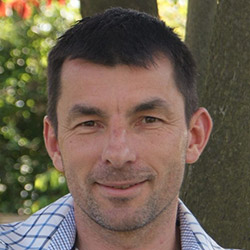Most asked: Nigel James, Countryside and Policy Manager, on farming in the South Downs
January 30, 2018
Send us your questions about a particular area of work in the National Park.
 Answering this month is: Nigel James. One of four Countryside and Policy Managers at the National Park Authority, Nigel leads on the National Parks work on the future of farming in the South Downs.
Answering this month is: Nigel James. One of four Countryside and Policy Managers at the National Park Authority, Nigel leads on the National Parks work on the future of farming in the South Downs.
Why is farming important in the South Downs National Park and to the National Park Authority?
Farming comprises 85 per cent of the South Downs National Park’s landscapes – impacts on farming will therefore impact the National Park.
Farming here is very diverse and made up of a mosaic of farm types including small family run farms and large farming estates both of which have stayed with the same family for generations. The mixture of livestock and arable farming gives the South Downs a very special feel.
Whatever happens to farming after we leave the European Union (EU) will directly impact the South Downs so we need to work with our farmers and the Government to get it right.
How has becoming a National Park changed things for farmers?
We endeavour to listen and talk to our farmers as much as possible because we need to understand the reality of farming in the National Park. Farmers are running a business and like any business it needs to be sustainable and economically viable. We therefore need to make sure that anything we ask them to do fits in with their farming / business operations.
There are great opportunities for diversification within the South Downs – for example we’re seeing some farmers introducing camping and other accommodation. Becoming a National Park does not mean that the South Downs will not change and that farming will not develop.
What else is the National Park Authority doing to support farmers?
We have a significant role to play in helping the public to understand that the South Downs is a farmed landscape which needs to be treated with respect. For example dog attacks on sheep are a problem and we’ve been running our #TaketheLead campaign for four years to raise the issue and encourage more responsible dog ownership. The 2017 campaign reached more than half a million people.
Every February we hold three farmer breakfasts across the National Park. We start at 7am to make it as easy as possible for farmers to join us. They’re able to air their views and challenge us about the work we’re doing on areas such as dogs, planning and the future of agri-environment schemes. Farming can be a pretty lonely job, so it’s also an opportunity for farmers to talk to each other and share experiences and ideas.
Why are farm clusters important?
A group of farmers working together to achieve environmental benefits on a scale that they couldn’t achieve alone has got to be a good thing. The six independent, farmer-led, farm cluster groups (which cover approximately two thirds of the National Park) are working to improve and connect habitats on a landscape scale for threatened species, including a number of farmland birds.
To promote the work of the farm clusters and encourage joint working between the groups we’re developing a range of joint / shared training courses. The first one we’re about to run is training on social media so expect to see more news about their work coming out in the near future.
Farming in the South Downs is perhaps going through its greatest time of change within a generation. The UK hasn’t had its own agricultural policy in over forty years and with the decision to leave the EU the Government is going to need to test things out to find out what works, what doesn’t and what’s practical. The new 25 Year Environment Plan talks about public money being used for public goods – but what would that actually look like on the ground? We see huge potential for the farm cluster groups within the South Downs to test out possible future schemes.
